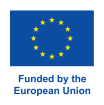NETWORK AS A WHOLE
The network, which had set up this Action, comprised of research groups belonging to 20 different COST Member Countries – with 65% of COST Inclusiveness Target Countries (ITCs), 1 COST Near Neighbour Country (NNC) and 5 COST International Partner Countries (IPC). The participants from the international partners (COST International Partners Countries) are scientists with a strong background and knowledge in mechanochemistry having provided milestones, breakthrough and strong advancement in the field. It is worth noting that some of them have been formed in Europe and they continue to share their expertise with their former collaborators in the COST Member Countries, maintaining a strong link to their European roots.
All the participants (from Cost Member Countries and ITCs, NNC and IPC) are already actively working in the field of mechanochemistry in complementary areas of expertise. They constitute already a whole entity built to treat scientifically and technically the topic of mechanochemistry applied to organic synthesis and scale-up with different competencies and cultural inputs.







